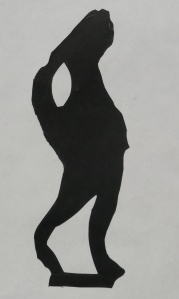 An interesting recent facebook interchange began with a woman posting that she “is frustrated and wondering how can sooo many of ‘our’ men have soooo many children and brag about it yet do nothing for them This is not to those of you that actually do your jobs that actually take an active role in your seeds’ lives as there are many of you as well. Maybe those men need to take the lost ones and teach ’em how to be a dad…”
An interesting recent facebook interchange began with a woman posting that she “is frustrated and wondering how can sooo many of ‘our’ men have soooo many children and brag about it yet do nothing for them This is not to those of you that actually do your jobs that actually take an active role in your seeds’ lives as there are many of you as well. Maybe those men need to take the lost ones and teach ’em how to be a dad…”
Everyone vaguely knows the story of, “The Frog Prince”—at least the notion that the girl kisses a frog and it transforms into a beautiful prince. A closer reading of the Grimm’s text, however, is highly illuminating. The frog is a symbol of the primitive human, and it is also a symbol of transformation in coming from beginning as a water-dweller, and evolving to a land creature. In the original story of “The Frog Prince,” the girl’s golden ball (a symbol of the Self) falls into the pond (i.e. the unconscious) and the frog offers to retrieve it… in return for being allowed to eat at her table and sleep in her bed. The girl agrees, but has practically forgotten the frog when he knocks at the door.
The princess’s father, a stickler for honesty and being true to one’s word, holds the girl to her promise. But by the time the frog is wanting a kiss in the bedroom, the girl is so fed up that she does not kiss him—she throws him against the wall! And that is when he transforms into a beautiful boy, and becomes her best friend and not, immediately anyway, her lover.
While of course we are not advocating that women need to go throwing their men against the wall, but there is something just a little more real about the notion that we men sometimes don’t snap out of our primitive natures by kisses alone.
A male reader responded to the above-woman’s post by saying, “What is also quite interesting is the stigma that society has painted around fathers. I understand that this is due to alot of absent fathers and this has been going on for quite sometime.I myself am a product of an absent father and experienced my issues around this dynamic. On the other hand there are those of us whom have actually taken on the two roles like some mothers have. I am a single father with a 12 year old daughter with a very absent relationship with her mother. This was a responsibility I fought for and treasure to this very day. The results have been amazing for my daughter. I’ve gotten in touch with a sensitivity I didn’t know I had. Being a clinician by profession has also helped.”
This week we’re going to take a look at some aspects related to fathering, so if you have two cents you’d like to throw in, please do. For now, let’s dedicate today to being the best fathers that we can be (which really means being the best parents we can be and acknowledging that beyond the balance of love and limits that every parent must strive to harmonize, just being involved and helping our kids know that we love them, that we’re in their lives and that we care, is not a gender issue). We need to find ways to bring dads who are alienated from their kids into the group again, and support them to succeed at parenting. From a “what’s best for the children?” perspective, perhaps we can strive to forgive the fathers who have hurt or disappointed us, especially if that father is us.
Namaste, Bruce


